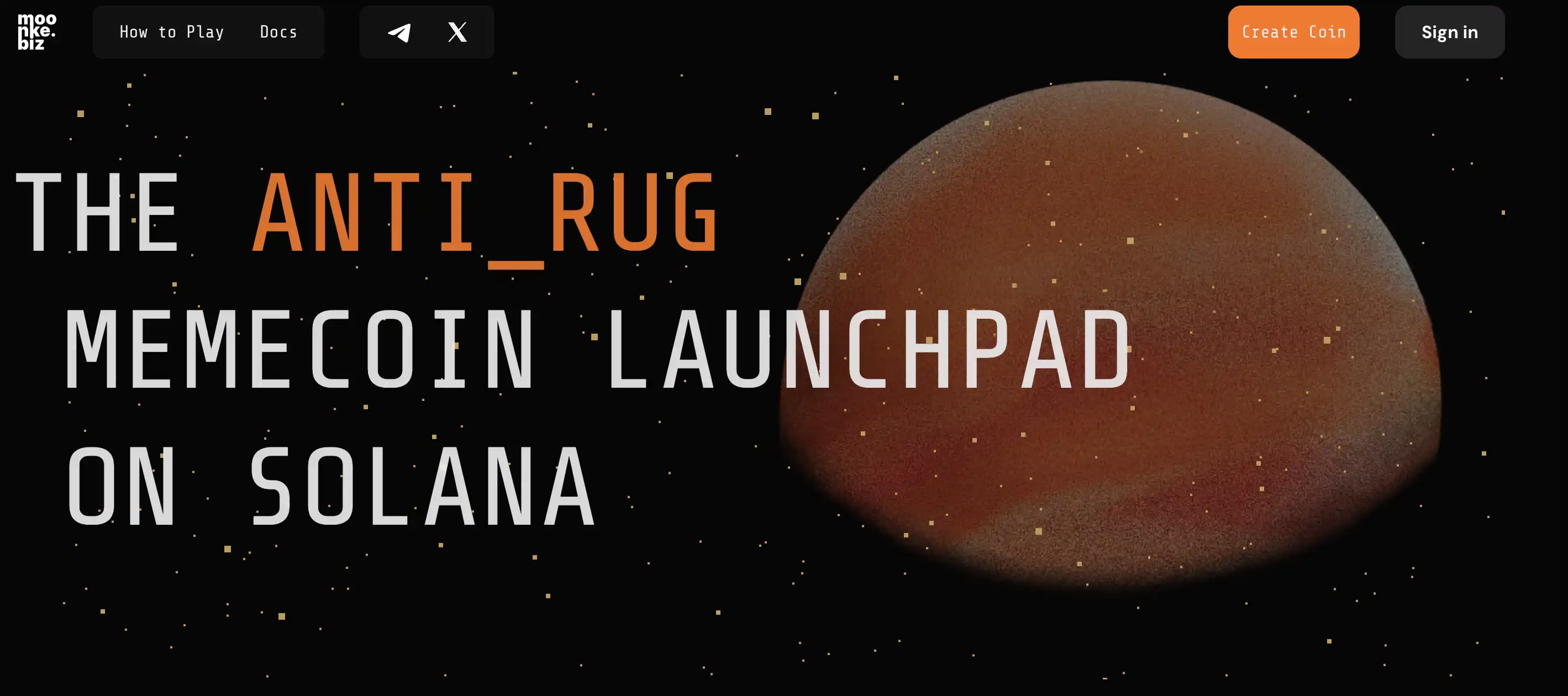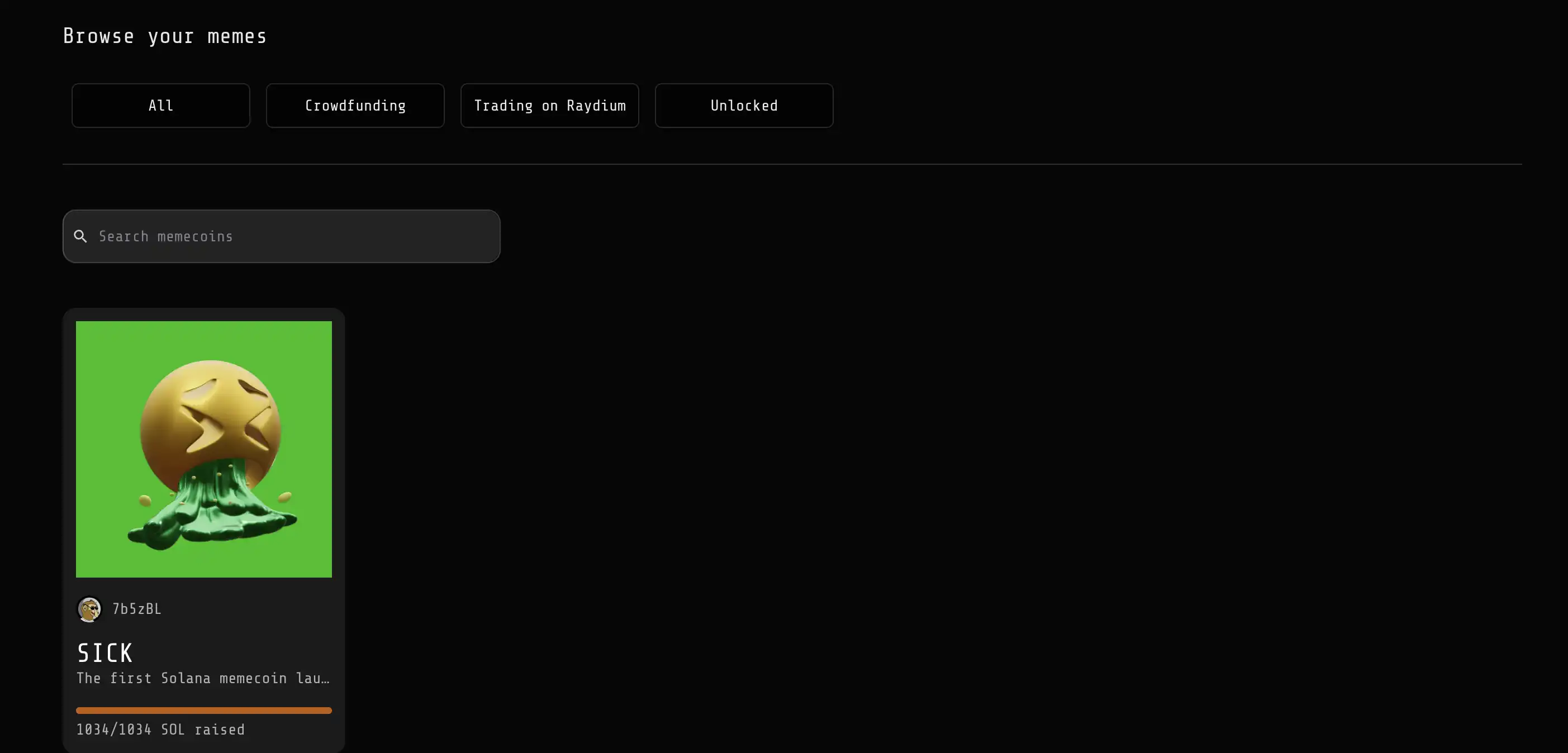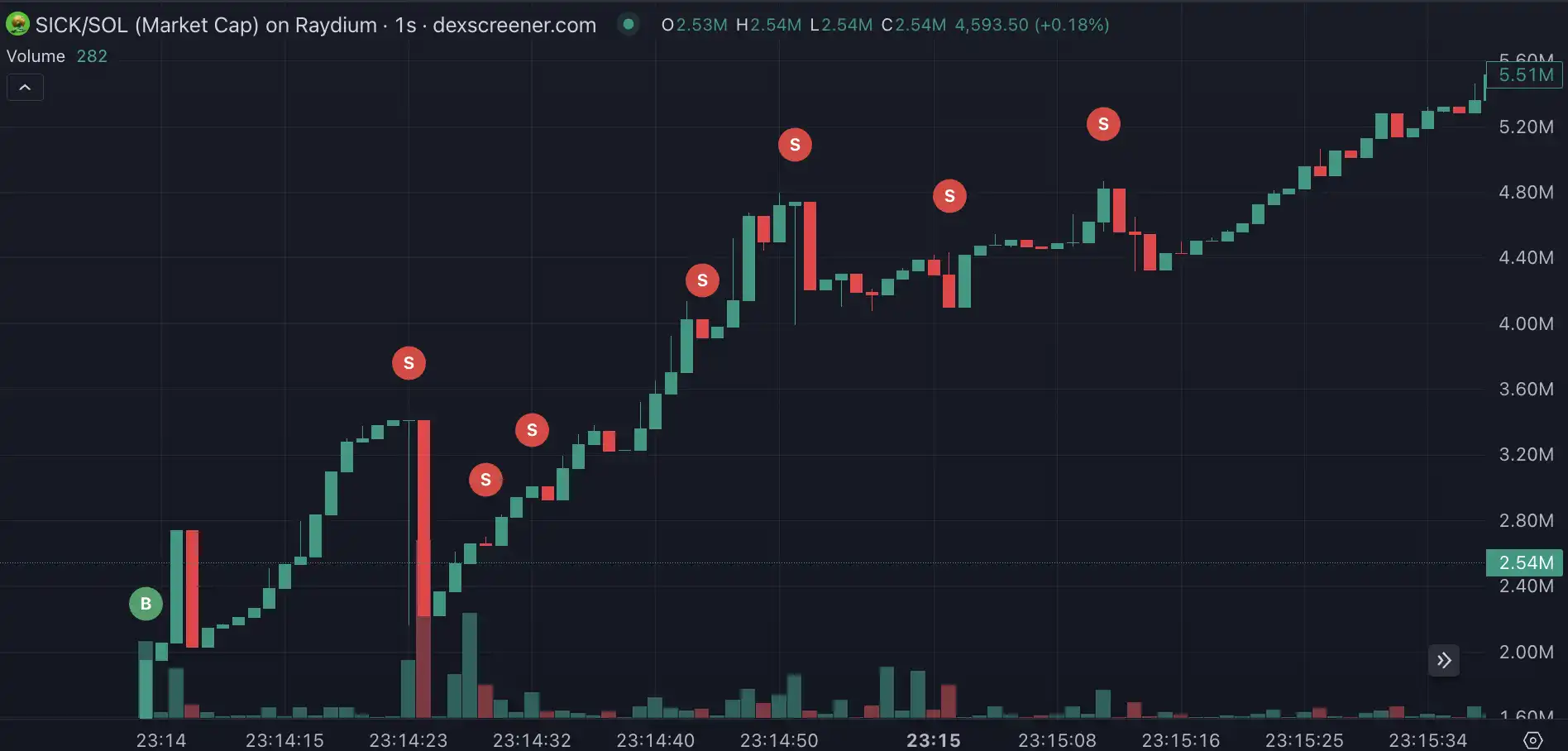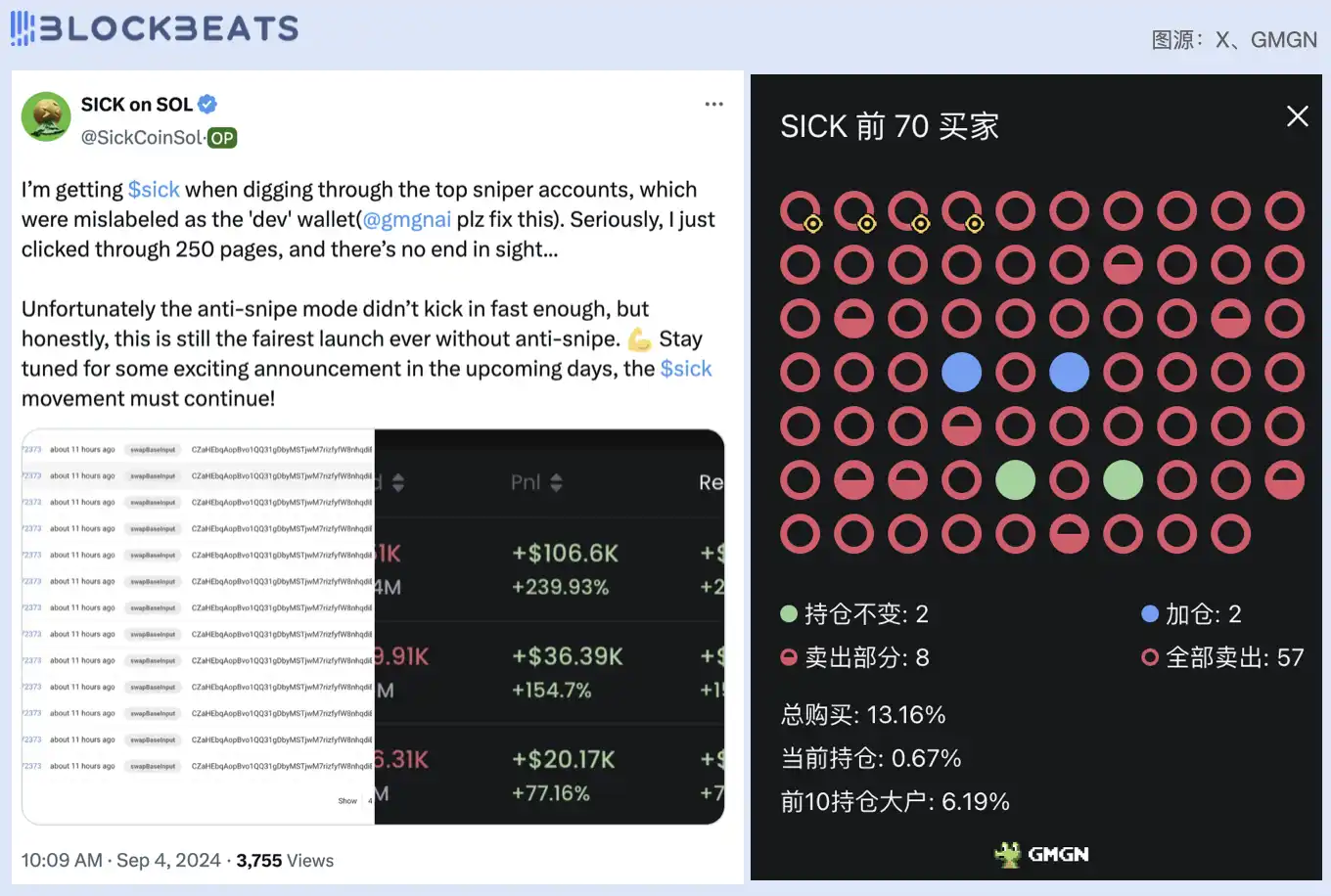Original author: Joyce, Jack
SICK, a meme coin that has been preheated for several days and has a novel Stake-to-meme concept and anti-opening sniping function, was launched last night. It was delayed in opening at first, and after opening, the community found that the claimed anti-sniping mechanism was completely useless, and most of the people who made money were snipers who entered the market immediately after the opening.
Two minutes after SICK opened, its market value was pushed to around $5 million by snipers. After 20 minutes, SICKs trading volume was $3.3 million, and its market value peaked at $6.8 million. Then it quickly collapsed and fell, and is now 60% below its peak. Afterwards, Sicks official Twitter account Sick On Sol explained that the anti-sniping function was not triggered due to technical problems.
What is SICK?
In the past two days, Sick on SOL has gained rapid attention in the meme community. Its NFT was minted in the form of blinks on August 23, and the floor price tripled on September 1. The token SICK, which was originally scheduled to be launched at 11 pm on September 3, has become the focus of meme players.
$SICK is a token launched through a platform called Moonkebiz, and the project it represents is Sick on SOL. $SICK raises initial liquidity by minting NFT (Sick of rug), and uses the raised amount as the initial liquidity pool of meme coins. Moonkebiz adopts a stake-to-meme mechanism, where the staker is the holder of the NFT. When the liquidity pool of the meme coin increases, the stakers share will be unlocked, and the NFT holder will receive the corresponding amount of SOL and the corresponding value of meme coins.
At the same time, Moonkebiz also has anti-sniping measures to prevent tokens from being snapped up in large quantities. Within 90 seconds of opening, if more than 10% of the circulating supply is purchased, a portion of the tokens stored in the smart contract will be added to the liquidity pool to prevent snipers from holding too many tokens. The additional income brought by this mechanism will also be distributed to NFT holders.
體驗教學
In the official Twitter account of Moonkebiz, it is introduced that its mission is to innovate the meme rug phenomenon that is rampant on Pump.fun. When entering the Moonkebiz homepage, the first thing you see is its slogan: A meme launch platform without rugs on Solana.
In the introduction of the gameplay, Moonkebiz used crowdfunding to replace the bounding curve stage that a meme needs to go through before it is released. Now you cannot freely create tokens on Moonkebiz. You need to send a private message to the official account to obtain the creation permission. SICK is the first token on Moonkebiz.
The battle was tragic
Last night, BlockBeats also watched the opening time of SICK. SICK announced the launch time as 23:00, but according to Dexcreener and GMGN, the actual launch time of the contract was 23:13:59. Dexcreener data showed that SICKs market value reached about 5.5 million US dollars two minutes after the opening. After that, SICK fell rapidly by 37% in 4 minutes, and then continued to rise for 13 minutes, and the coin price doubled. At this time, only 20 minutes had passed since the opening.
Left: SICKs trend within 8 minutes of opening; Right: SICKs trend within 3 hours of opening
After reaching a market value of 6.8 million US dollars, SICK began to plummet, and its current market value is 2.49 million US dollars, down more than 60% from its peak. According to the response of meme community players, most of the traders who can make profits in SICK are traders who quickly bought in within one minute of the opening. For example, the sniper wallet address starting with CZaHE, Dexcreener data shows that it bought 44,000 US dollars of SICK at the opening moment, and sold all the chips in 7 transactions in the next minute, leaving the market with a profit of 100,000 US dollars.
Meme player Mikong shared his trading experience on Twitter. After the opening time passed but the token contract was not announced, his team found a frequently traded address 2 hbRbjgYXYFtDCPKDZngY 1 Vzy 3 RdoajwaQziZHByp 7 mk which was related to Sicks official tg group. So they bought it manually a dozen seconds after the contract address was launched, doubling their investment.
Left: @mekongeth, the SICK contract seen at 22:53; right: SICK official released the token contract at 23:14
After the scheduled launch time was delayed, we started to receive a lot of fud messages, so we cancelled the sniper bot that we had activated in advance. Afterwards, we found that sicks anti-sniping had almost no effect. I really regret not activating the sniper bot. Mikong wrote.
In response to community questions, SICK officials explained that the anti-sniping function was not triggered due to technical issues caused by transaction failures related to rate limits.
SICK officials also pointed out on Twitter that the meme board tool GMGN marked the sniper as a developers smurf, hoping that they would change the mark, and complained that the snipers transaction records were too many, and there was no end after turning 250 pages. Unfortunately, the anti-sniping mode was not launched fast enough, but to be honest, this is still the fairest token launch ever (although there is no anti-sniping).
GMGN told BlockBeats that the basis for determining dev trumpets is the traders in the first few blocks at the opening. Records show that four sniper addresses were determined to be dev trumpets, and their profit multiples on SICK ranged from 100% to 300%. If there is anything that ordinary traders can learn, it is that they should not only be wary of the vision portrayed by the project party, but also distinguish the rules of play set by the project party.
This article is sourced from the internet: Anti-sniper Memes debut failed, SICK, who wanted to challenge Pump.fun, caused controversy
Related: From zkSync to LayerZero, how do Sybil attacks affect token issuance?
Original author: Builders Original translation: TechFlow The token launch is a critical moment in a project’s history. If you screw up the token launch, it could be the end of the project. Nothing can destroy the credibility of a token offering faster than a Sybil attack, in which a malicious actor creates multiple false identities in an attempt to gain a disproportionate amount of influence and token distribution in the network. No one wants to see a fake community. Next, we will explore how Sybil attacks affect token issuance through two recent airdrop cases: zkSync and LayerZero. zkSync zkSync is an Ethereum Layer 2 scaling solution that uses zero-knowledge proofs and was one of the most anticipated airdrops in 2024. However, it has received a lot of criticism due to…














